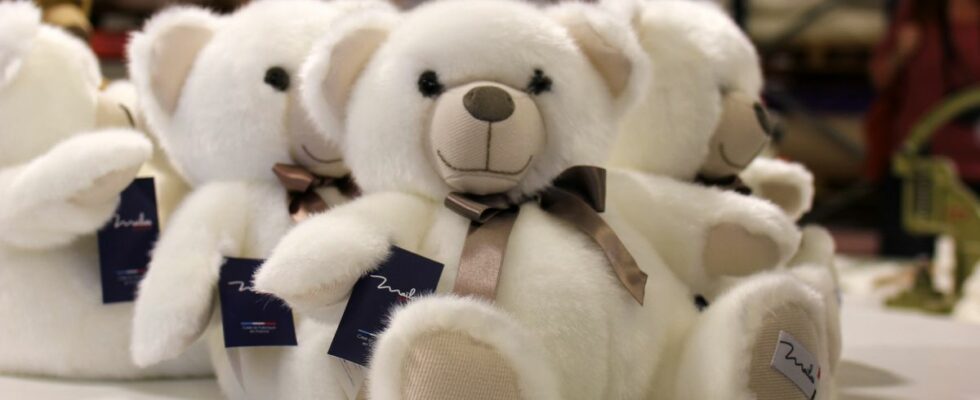Thirty years of sewing, quilting and stuffing for the Nounours company and then nothing. When the factory in Châtillon-en-Vendelais (Ille-et-Vilaine) closed in 2008, many employees found themselves deprived of their know-how, victims of a market that had become global and left no more make way for a plush made in France. Too expensive. A handful of them had rebounded in the workshop of Maïlou Tradition, a small artisanal shop poorly established in Châteaubourg, which an entrepreneur had taken over… Before letting it go eighteen months later in the face of cash flow difficulties. More than ten years later, Maïlou Tradition is still standing thanks to exceptional women. Going from a DIY workshop to a brand new factory that will manufacture the 2024 Olympics mascot, the brand has seen it all. It is now part of the select club of 100% French plush manufacturers.
The emotion was palpable and the pride could be read in the eyes of the Doudou et Compagnie seamstresses. After seeing their profession disappear, these women received a visit from Tony Estanguet, who chairs the organizing committee of the Paris Olympic Games, in freshly renovated premises in La Guerche-de-Bretagne. It is in this old abandoned garden center that several copies of “Phryge”, the mascot of the Olympic Games, are released every day. “It proves that we still know how to do it in France”, slips Mélanie, one of the seamstresses recruited by Doudou et Compagnie.
The Parisian company did not think for a second that it would win this call for tenders when it bought Maïlou Tradition in 2019. “They had a unique know-how in France which would disappear if no one took over. The market was complicated and the business model too tight. The manufacturing was artisanal and we immediately understood that it would have to be industrialized,” recalls Alain Joly, CEO of Doudou et Compagnie. In France, around 15 million stuffed animals are sold each year, i.e. around 5% of the toy market. But how many are made in France? Not a lot.
“Opening the way for other entrepreneurs”
For a few weeks and the arrival of the “Phryges”, the soft stuffed animals of the Maïlou brand have been a little less popular in the workshop. After 2024, they will nevertheless remain an important element of the commercial strategy desired by their new boss. “There will be an air pocket after the Olympics but we are preparing for it, we already have original ideas. »
Alain Joly’s objective is simple: more than 500 Olympic soft toys will have to leave the garment factory every day, without abandoning the other soft toys that must continue to be delivered. “It’s quite a challenge but we like it. I came back for that,” explains Annick Brault. In 2008, it was she who founded Maïlou Tradition to continue to practice her profession after being fired from Nounours. “We worked for big brands like Hermès or Dior. But it was chaotic, we made very big sacrifices. I spent all my day in production and in the evening, I did the orders and the administration. I was tired. In 2020, Annick retired when she felt sure her baby was in good hands. She finally returned a year and a half later to train the new seamstresses in express and meet the demand for the Olympics. “I love what I do. Stuffed animals are my whole life so I came back with pleasure, ”she says.
The former manager has known everything since her dismissal at Nounours. An experience that allows him to warn his new bosses about the risk of seeing themselves too beautiful. “I did French manufacturing and I know how hard it is, how difficult it is,” says the seamstress. His new boss is nevertheless optimistic despite the fierce Asian competition. “We will pave the way for other entrepreneurs. We are going to show that we can still make stuffed animals in France,” promises Alain Joly. A small Gallic village resists against the invader.

